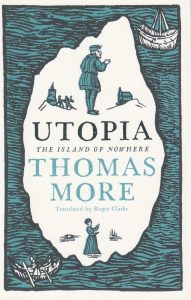
Thomas More’s Utopia first appeared in print in December 1516, half a millennium ago. Since then it has surprised and fascinated readers by the originality of its thinking, the clarity and ingenuity of its imagination and the acuity and passion of its commentary on political, social and moral issues. Many of these issues – crime and punishment, war and peace, poverty and inequality, wealth and its fair distribution, discrimination and human rights, human welfare and fulfilment, the productive integration of society – are still topical today. But Utopia is not a grimly serious book: it was written to tease and entertain as well as to instruct.
The purpose of this edition is to present today’s reader with a translation of Utopia from More’s Latin into an English that is accurate, clear, readable and idiomatic – and true to the spirit of More’s writing.
Though authored by an Englishman, Utopia is a European work. It was conceived and largely written in Flanders, for a European readership. Its setting is in Antwerp; its main narrator is Portuguese. Its language, Latin, was the lingua franca of educated Europe; its five printings during More’s lifetime were in Brabant, France, Switzerland and Italy; and its first sponsors were Dutch, Flemish, French and German.
This edition contains, as well as Utopia itself, excerpts from contemporary correspondence relevant to Utopia among More and his humanist friends across western Europe. These documents shed light on Utopia’s composition, publication and initial reception. They also provide an insight into More’s personality before it was hardened by prolonged exposure to Henry VIII’s court and the perceived challenges of the Protestant Reformation, and reveal him then to have been a man, not only of formidable intelligence and uncompromising probity, but also of generosity, charm and humour.
There are also several verses about Utopia composed by More’s friends and collaborators, one of them in a specially devised Utopian language and script.